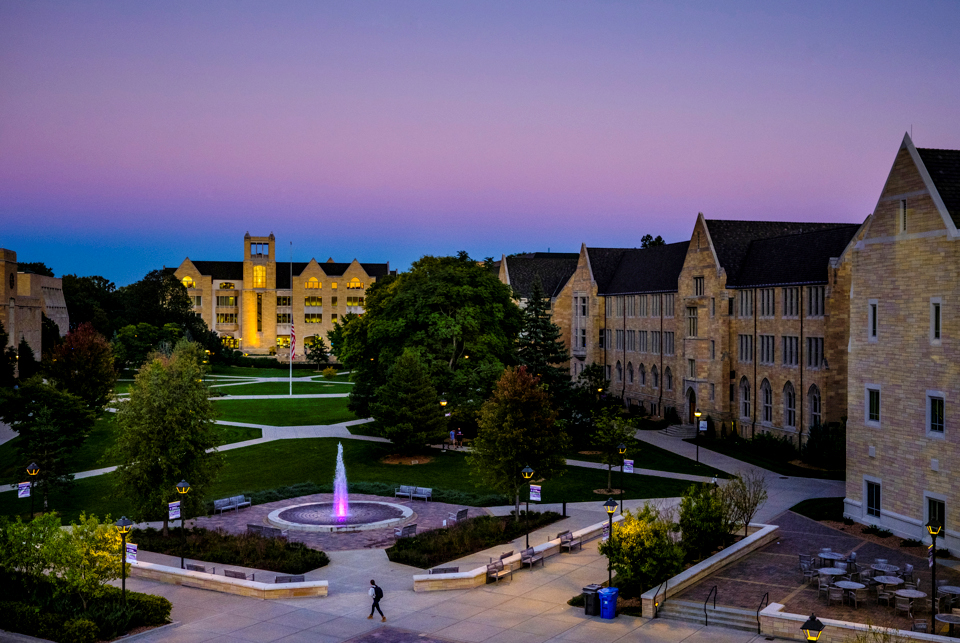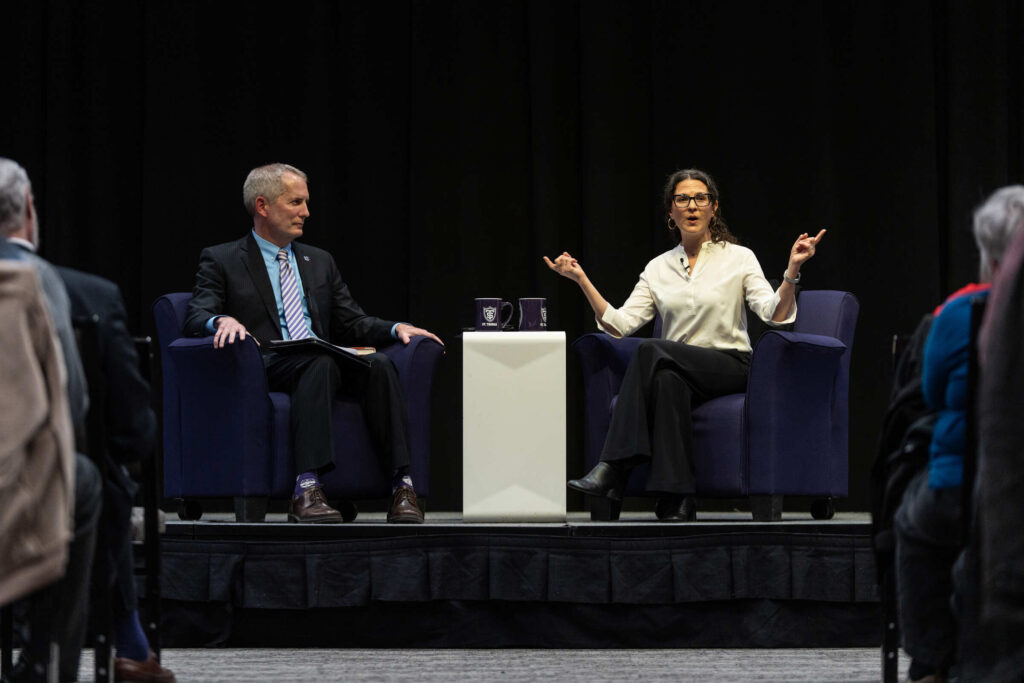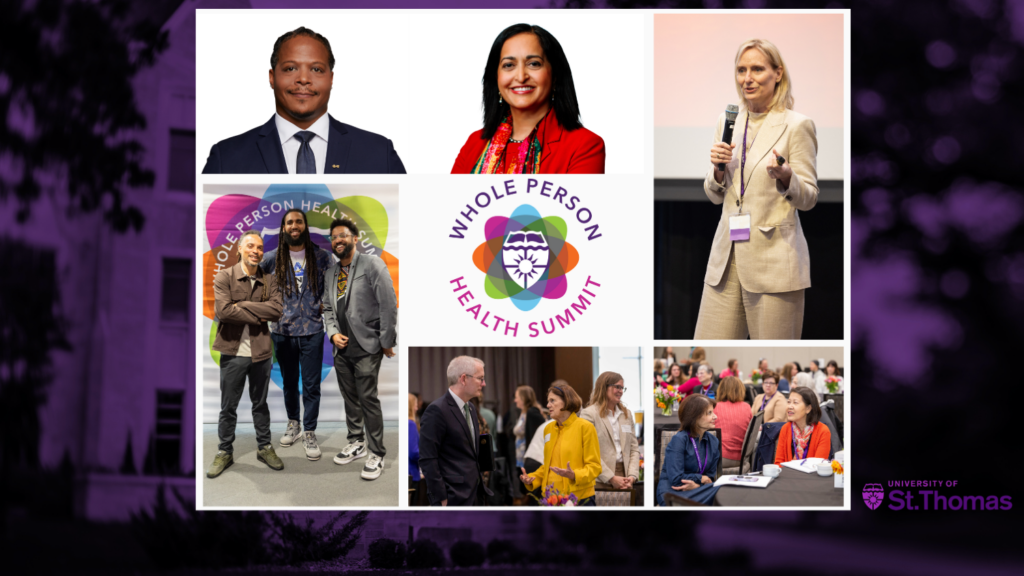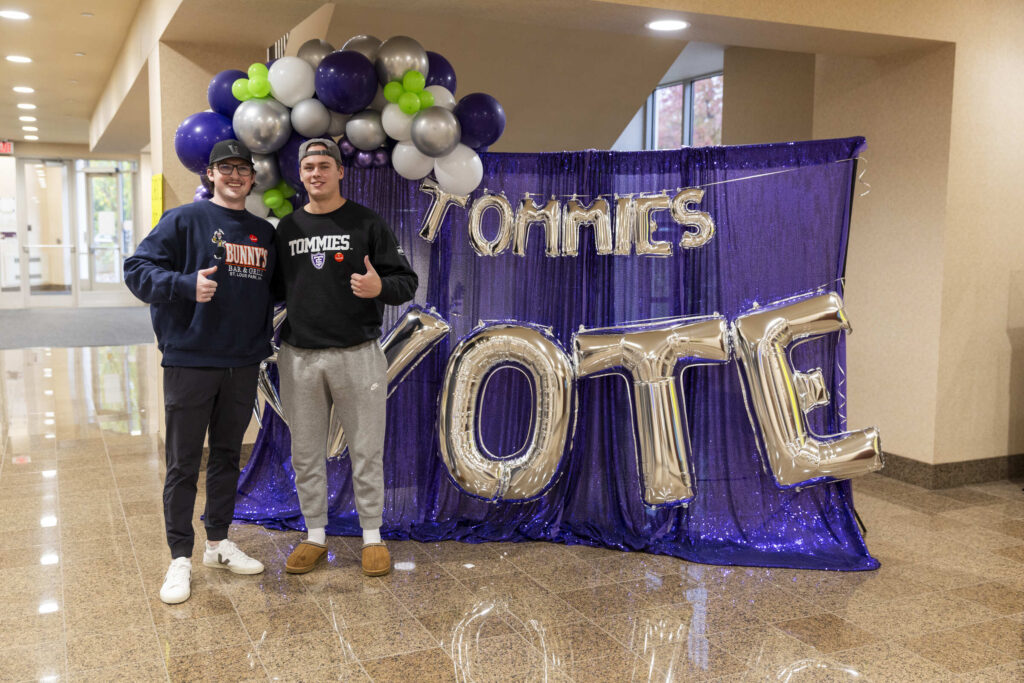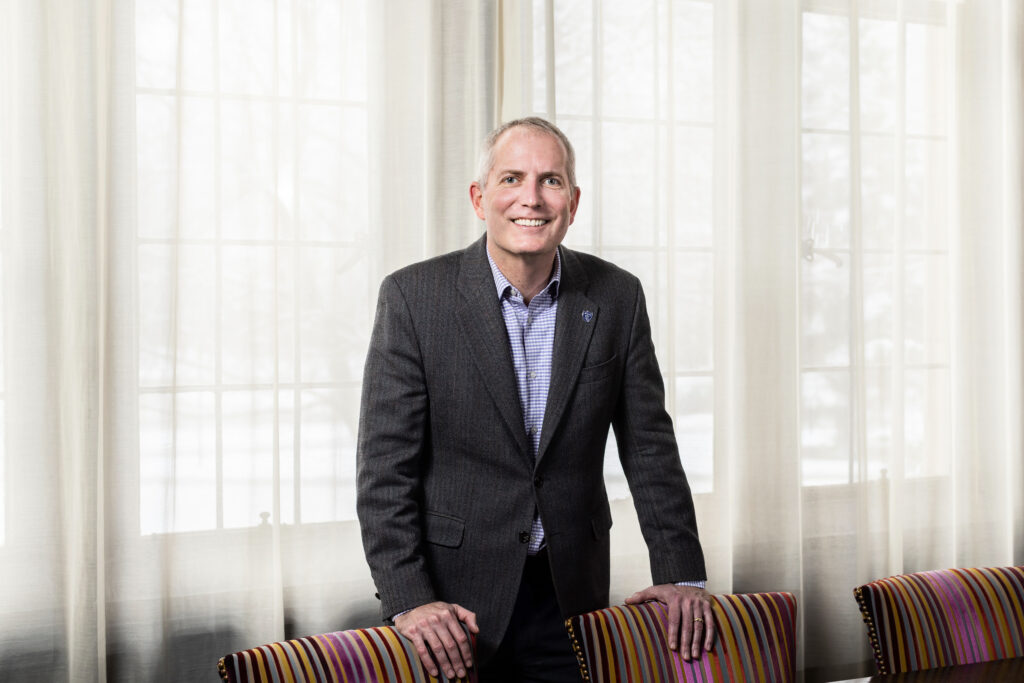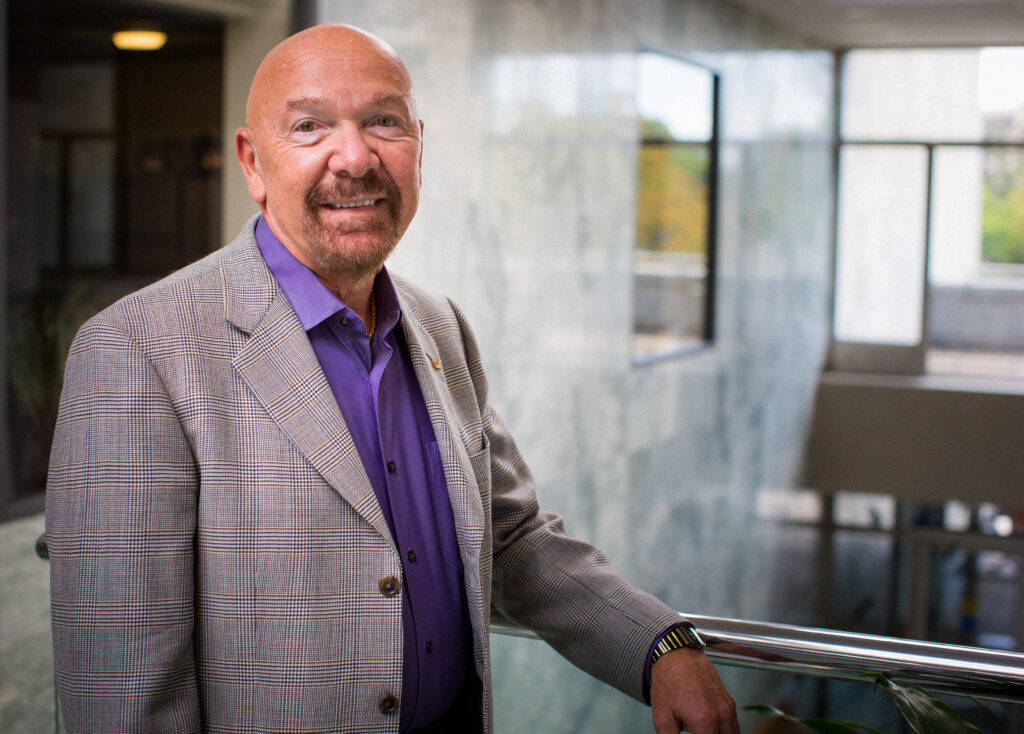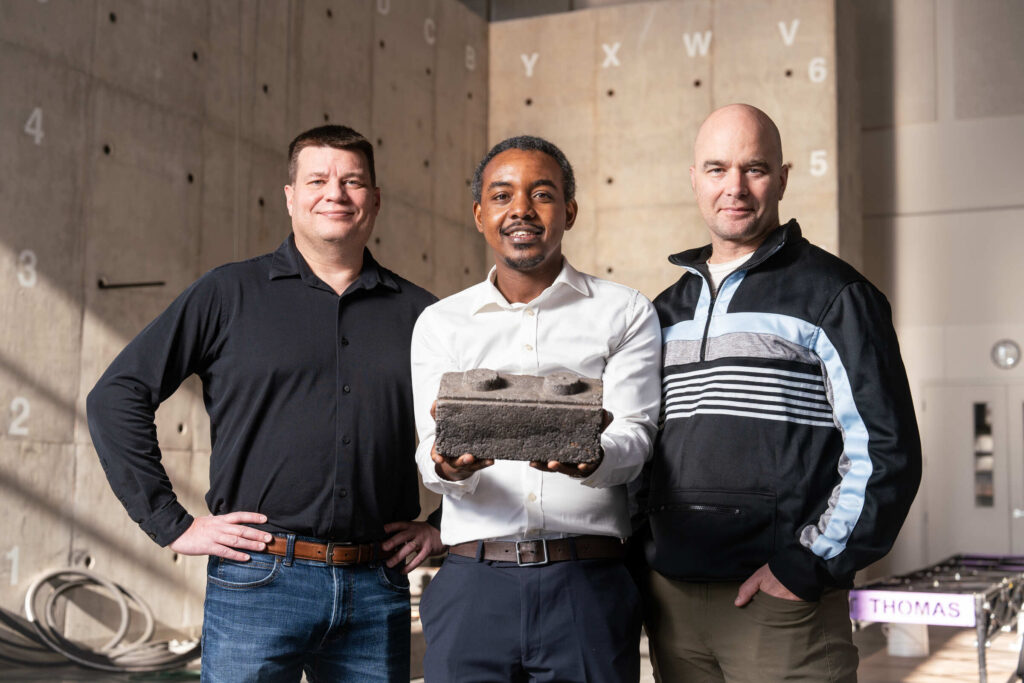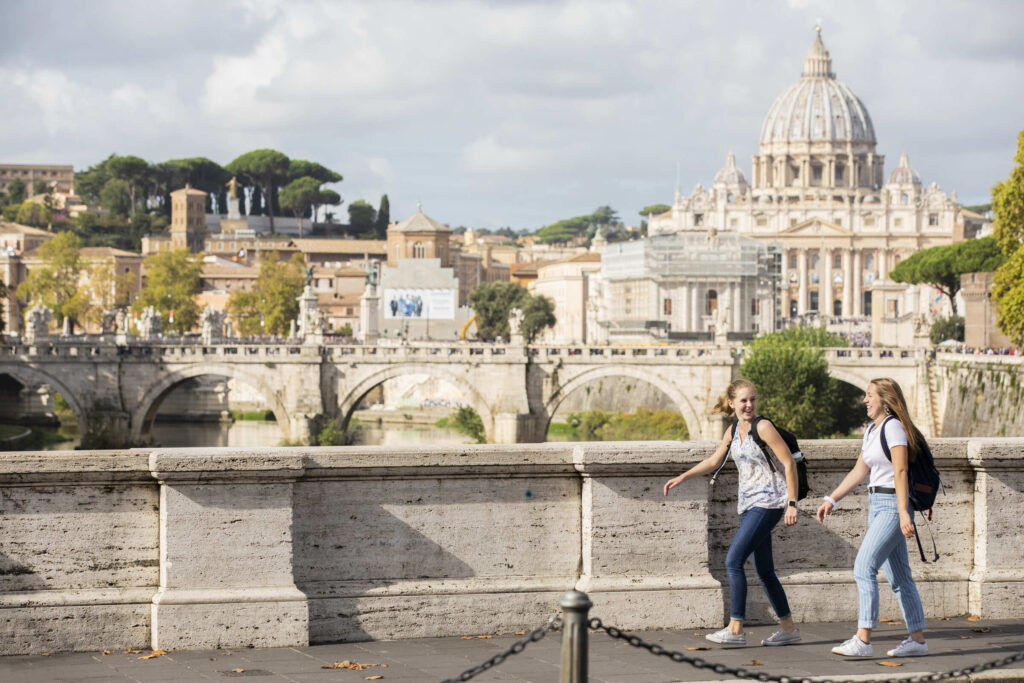College of Arts and Sciences Dean Yohuru Williams announced Monday plans for the college to establish three externally facing centers as “incubators of problem-solving and innovation," which will focus on resourcing faculty and student research and collaboration while promoting community-engaged scholarship.
Those centers are: The Center for the Arts and the Humanities in the Public Interest; The Center for Health, Wellness and Sustainability; and The Institute for Civility and Public Discourse.
"Our contemporary moment needs grounded men and women of service to work toward peace and the betterment of humanity. That can only be accomplished, which Archbishop [John] Ireland understood, through a deep collaboration and investment with the community," Williams said. "That is why tonight, the College of Arts and Sciences is announcing the launch of three externally facing centers, and a newly reimagined study abroad program, committed to carrying out this critical part of our historic mission."
Designed to help address evolving community issues, these interdisciplinary hubs will help the college – and the university – move beyond academic silos toward a model of scholarly engagement that will transform the way students and the community connect with St. Thomas. Projects may help shape multidisciplinary curriculum, and they may be proposed by faculty, students or external community members. Funding will provide a variety of resources including grants, stipends, work study compensation, academic travel, supplies and equipment for team members to participate in projects.
The Center for the Arts and the Humanities in the Public Interest: The center will provide opportunities and resources for faculty and students to pursue applied research projects that demonstrate how the arts and humanities create new ideas, concepts and designs that improve culture, society and productivity while driving innovation. Problems and projects that match arts and humanities faculty with sciences, social sciences, business, entrepreneurship and engineering are especially welcome, as are projects in the digital humanities that make the arts, literature and history available to a wider public in various contexts.
The Center for Health, Wellness and Sustainability: The center will address questions and issues of human and environmental health broadly speaking. This will include, but not be limited to, issues of global warming, sustainability, energy, public health, mindfulness and environmental justice. This center will provide opportunities and resources for faculty and students to collaborate on innovative curriculum ideations, and conduct applied research across disciplines that focus on connections between human and environmental health. Proposals that match students with faculty and/or community projects and initiatives will be encouraged.
The Institute for Civility and Public Discourse: This center will focus on repairing and creating new pathways for civil discourse through faculty/student applied research, community-based research, public lectures and forums, and the support of scholarship that fosters conversation around critical questions of civil engagement and civic participation. Priority will be given to projects and proposals that incorporate interdisciplinary research, connect the campus and community in the meaningful work of elevating civic-mindedness, and promote civic responsibility consistent with the emphasis on civility and reasoned debate that is synonymous with the Catholic intellectual tradition. This center also will provide a space for community conversations that respond to current events.
"To our community partners, we look forward to working with you in ushering in a new era of restoring, revitalizing and reimagining the city of St. Paul and beyond," Williams said. "We will find ample support in these centers, meant to position the college as this community’s think tank."
